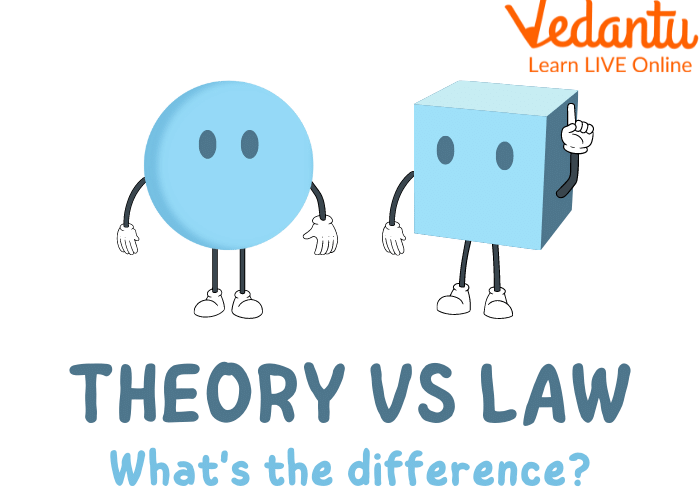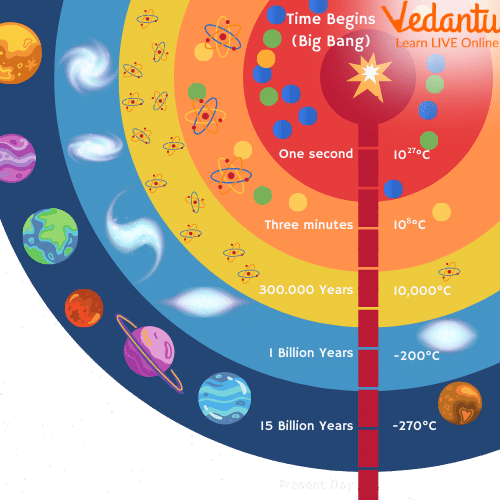




How do Theories and Laws Differ in Science?
Any new phenomenon that is newly described has to get through a bunch of major world scientific associations which check the described phenomenon’s accuracy and logical aspects before bringing the findings to people’s notice.
In simpler words, any big exam you write is reviewed by 2 if not 3 teachers to make sure that the written information you have given in it is accurate. So these teachers or scientific associations in our case, look for theories and laws that are an important part of this new phenomenon being found. So what is a law? How is it different from a theory? Let’s jump into the details in the following sections.

How Different is a Theory from a Law?
What is a Theory?
Let’s take a scientific process to understand the contrast between a theory and a law.
Gravity! Why do we need gravity? What makes gravity’s existence so important? These questions are usually explained by a scientific theory definition.
A theory is an explanation of WHY a process occurs. It makes us appreciate the need for a particular natural phenomenon. Along with that, it also describes several other pieces of information about a phenomenon like vital observations and results related to it.
One famous example of a theory is “the big bang theory” which is all about how the universe we live in right now started as a tiny dot of matter billions of years ago. It is a super interesting theory backed by relevant evidence and factual information.

The Big Bang Theory
What is a Law?
More often than not, once the theory of a process is out, scientists carry out various experiments and bring about another set of observations. Before you guess, yes! These consequent sets of observations come out as laws.
A scientific law is a description of the phenomenon observed. It does not talk about why the phenomenon is important. It predominantly deals with HOW a process occurs.
A well-known example of a scientific law is Newton’s Laws of Motion which describe how different physical quantities affect the motion of an object.

Newton’s Laws of Motion
How Is a Theory Different from a Law?
To compare the contrasting features of these two concepts, let’s tabulate the theory vs law in the following points. Here, we will see the difference between law and theory as follows:
Summary
Theories and laws are important parts of any scientific phenomenon. Though they are two different things, they are involved in explaining the working and necessity of a scientific process. A scientific theory is defined as something that explains the necessity of a particular process. It explains WHY a process occurs in nature and how we are dependent on it by different natural setups. Evolution and gravity are two theories present in science. A scientific law is defined as a statement that explains the working of a process. It deals with HOW a process occurs in nature under several experimental, controlled setups.
FAQs on Difference Between Theory and Law
1. How is a hypothesis different from a theory or a law?
A hypothesis in simpler words is a guess on how things might work. Once a phenomenon is hypothesised, scientists carry out various related experiments to understand the phenomenon further. After a bunch of experiments are done and they understand the processes better, scientists come up with a theory that describes the importance of the process. On a further in-depth understanding of a process, scientists come up with laws that tell us how the process takes place. So, a hypothesis has no evidence, but a theory or a law has enough pieces of evidence.
2. Can a theory be derived from a law or is the opposite true?
A scientific theory and a scientific law are two different independent concepts of experimental sciences. Mostly, one cannot be derived from the other as they deal with different ideas altogether.
But if you look closely, since a law says how a phenomenon occurs a theory can be derived from it. As theory says the importance of a particular process, trying to understand the laws of a process through the theory seems unlikely. Thus, a theory can be derived from law but the reverse is not always true.
3. How do scientists develop theories?
Theories usually develop from the scientists making an inductive generalisation of their observations. Inductive generalisations are defined as a statement that begins with “All As, have B” and ends with “and therefore, all As must have B”.
A scientist may also perform inference of what is being observed for a phenomenon under study and try to come up with a theory to explain the process or establish its necessity. The first step in developing any theory is to put forth the laws that are observed.









